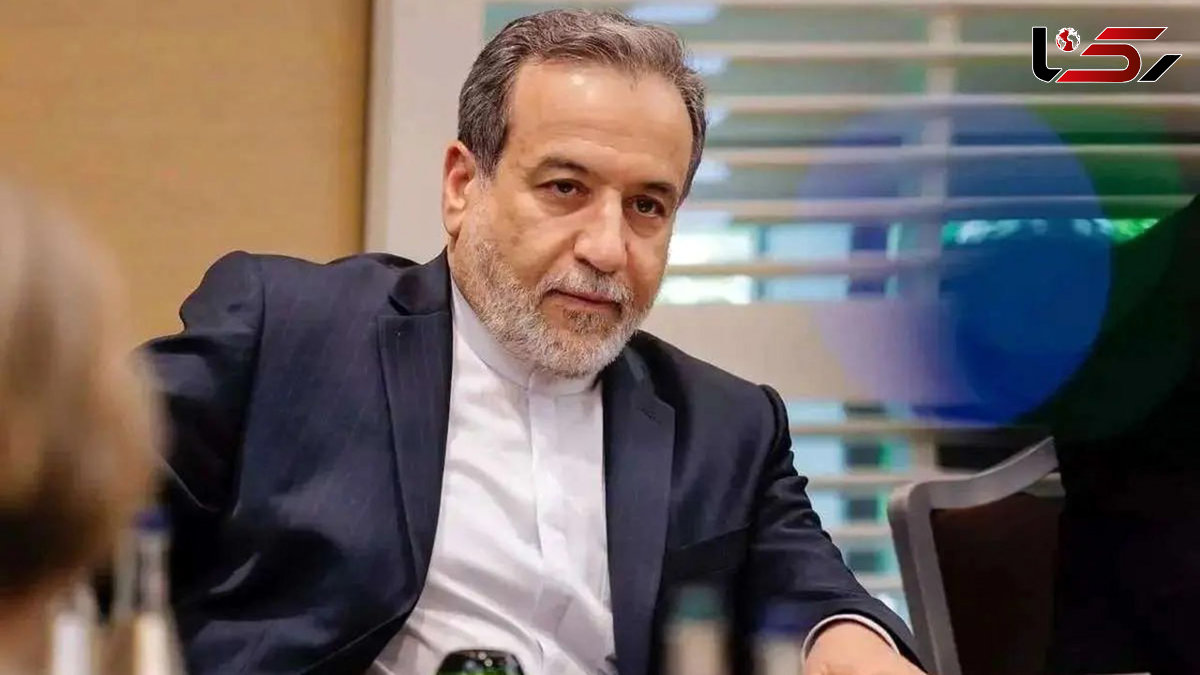Iranian Foreign Minister: Tehran Ready for Talks with the U.S., But with Conditions
Rekna Political Desk: Seyed Abbas Araghchi, Minister of Foreign Affairs of Iran, has announced that Tehran is prepared to resume indirect negotiations with Washington.

According to Rokna, Seyed Abbas Araghchi, in an interview with Asharq Al-Awsat, stated that the condition for such negotiations is receiving guarantees from the United States to refrain from any military action against Iran.
The Foreign Minister, stressing that Iran is prepared to resume indirect talks with the U.S. conditionally, warned that Iran’s response to any act of aggression would be stronger than before.
Seyed Abbas Araghchi, Minister of Foreign Affairs of the Islamic Republic of Iran, told the Saudi newspaper that Tehran is ready to resume nuclear negotiations with Washington, but only on the condition of guarantees against any military action.
The Foreign Minister said that the United States “will not achieve in negotiations what it failed to achieve through military attacks on nuclear facilities.”
Speaking after participating in the extraordinary meeting of the Organization of Islamic Cooperation’s foreign ministers in Jeddah on supporting Gaza and Palestine, Araghchi did not rule out the possibility of a new confrontation with the Zionist regime, adding: “Anything is possible, and Tehran is prepared for all circumstances.”
Regarding Iran-Saudi relations, he emphasized: “Bilateral relations are at an unprecedented stage of cooperation. Saudi Arabia is a major country in the region and the Islamic world, and along with Iran, is considered one of the two important regional poles. Cooperation between the two countries guarantees the region’s security and stability.”
On Lebanon, Araghchi clarified: “We do not interfere in Lebanon’s internal affairs, but like other countries, we express our views and opinions. The issue of Hezbollah’s arms is a matter for Hezbollah itself and the Lebanese government. Any plan to disarm it is 100 percent an Israeli scheme.”
In response to a question regarding threats to close the Strait of Hormuz, he said: “Iran’s official policy is absolutely clear. We want peace and calm in the Persian Gulf. Iran is an oil-producing and oil-exporting country, and its economy depends on it. Therefore, naturally, we want freedom of navigation for everyone.”
Nuclear Negotiations
Araghchi stressed that Tehran remains ready to engage in “fair and just” negotiations regarding its nuclear program. He recalled that talks are currently ongoing with three European countries and the International Atomic Energy Agency to establish a new framework for negotiations.
He stated: “We are ready to engage in indirect talks with the United States, provided that the Americans assure us that no military attacks will be carried out during the negotiations. We must ensure that when they sit at the negotiating table, it is for a fair and just dialogue that serves the interests of both sides and is built on mutual benefit. But if they imagine that they can achieve through negotiations what they failed to gain through military attacks, such negotiations will not take place.”
He added: “We have never left the negotiating table. Even when we were in the midst of talks, Israel attacked us, and the United States joined in. Therefore, any new negotiation—if it takes place—will certainly not be like the past. I have repeatedly emphasized that our position on indirect talks with the U.S. has not changed.”
Possibility of Confrontation with Israel
In response to a question about recent regional tensions and whether Iran and the Zionist regime are on the verge of a new confrontation, Araghchi said: “Anything is possible, and we are ready for every scenario. The Zionist regime and the United States achieved none of their objectives during the 12-day war, while the Islamic Republic resisted heroically and simultaneously responded to the aggressions. We continued our missile attacks against Israel until the very last moment, while they thought they could stop it within 48 hours.”
He continued: “After 12 days, it was Israel that requested an unconditional ceasefire, and since the request was unconditional, we accepted. If they wish to repeat this scenario, we are ready. But the experience of the 12-day war proved that the military option is a failed option, not a successful one. Therefore, I doubt they will repeat such an experience, but if they do, they will face a similar response, even stronger.”
Send Comments